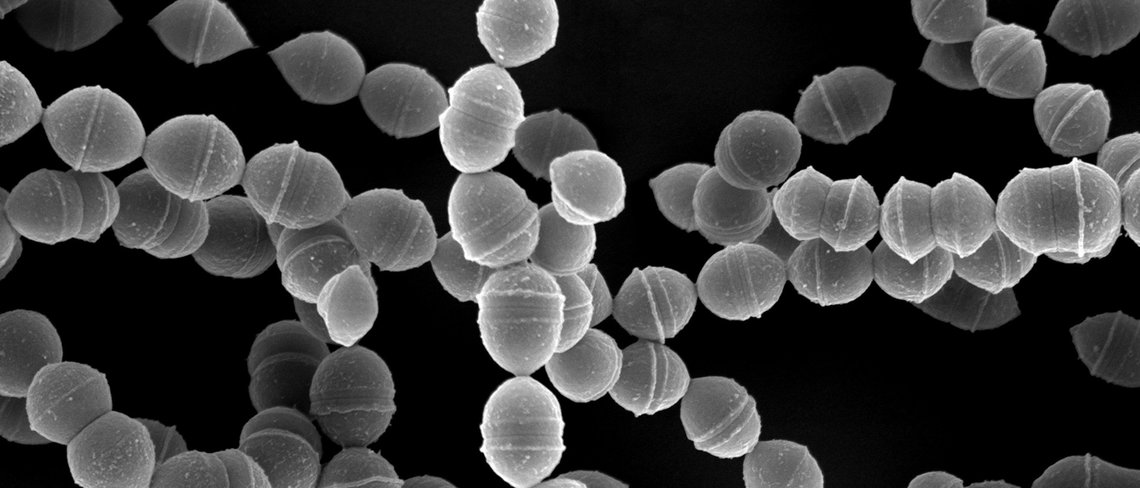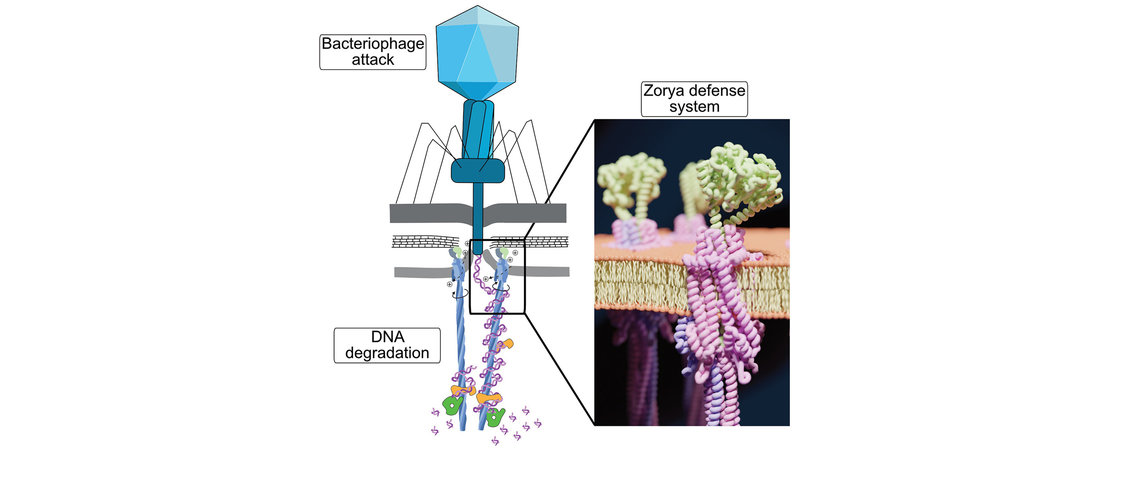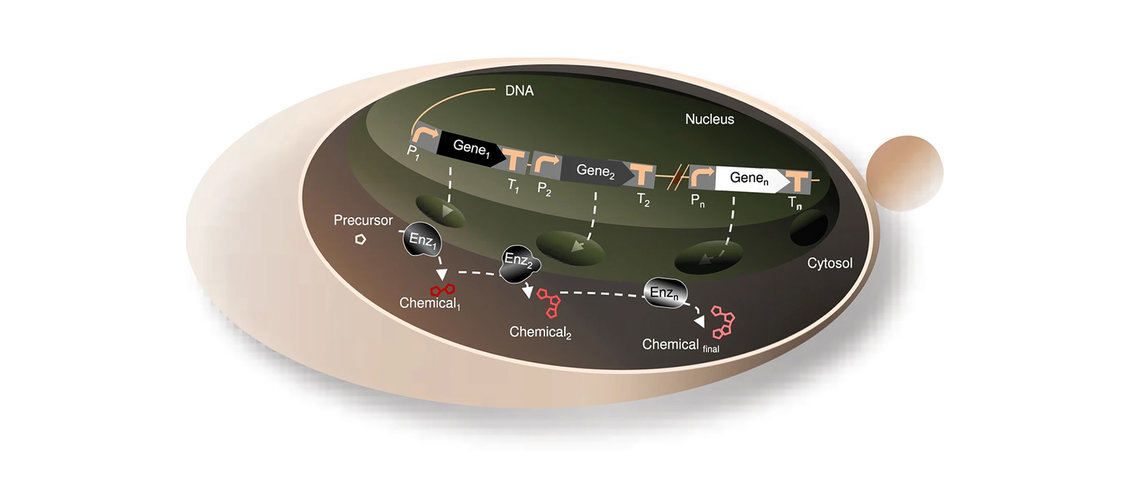
The Max Planck Unit for the Science of Pathogens
The Max Planck Unit for the Science of Pathogens (MPUSP) is an independent institute of the Max Planck Society. MPUSP was founded in 2018 by Emmanuelle Charpentier to strengthen fundamental research on pathogens (bacteria and viruses) causing diseases in humans. The institute is located on the Campus Charité Mitte in Berlin.
Congratulations to MPUSP Fellow Marc Erhardt for his new publication in Nature Microbiology!
JULY 9, 2025Decoding the Architecture of the Bacterial Flagellum: Researchers uncover the mechanism of bacterial flagellum assembly.: Max Planck Fellow Marc Erhardt at the Max Planck Unit for the Science of Pathogens and his group at Humboldt-Universität zu Berlin have now resolved, in collaboration with international colleagues at King’s College London, the complete native structure of the bacterial flagellum, including previously unknown key intermediates of its self-assembly. Image: © Prof. Marc Erhardt. Click Here to Read More.

Congratulations to MPUSP Scientist Dmitry Ignatov for his new publication in Nature Communications!
JULY 7, 2025A new translation factor joins the fray: Researchers discover a protein facilitating translation of specific amino acid sequences. Max Planck Scientist Dmitry Ignatov and Emmanuelle Charpentier's Group at the Max Planck Unit for the Science of Pathogens have demonstrated that a newly identified protein in bacteria acts as a translation factor necessary for the efficient synthesis of proteins with proline-rich motifs. Click to read more.

Congratulations to MPUSP affiliate Gita Naseri on receiving new funding from the Volkswagen Stiftung!
MARCH 13, 2025Bioengineering platform for sustainable mycellum material production: Gita Naseri, together with Hannes Hinneburg at the Fraunhofer Institute for Applied Polymer Research IAP (Potsdam-Golm), has been awarded a four-year, €1.3 million grant by the Volkswagen Stiftung for the MyPro project.

Congratulations to MPUSP Fellow Marc Erhardt, Philipp Popp, and team at Humboldt-Universität zu Berlin for their new publication in Nature.
DECEMBER 11, 2024„Structure and mechanism of the Zorya anti-phage defense system“, shedding light on a unique mechanism by which bacteria fend off viral attacks without sacrificing their own survival.
3D Model © Frederick J.O. Martin (University of Copenhagen). Click to Read More.

Congratulations to MPUSP affiliate Gita Naseri who is starting her Emmy Noether research group at the Institute for Biology at Humboldt-Universität zu Berlin!
AUGUST 1, 2024Click here to read more about Dr. Naseri and her lab
(Image: Gita Naseri --nature.com/articles/s41467-023-37627-1)